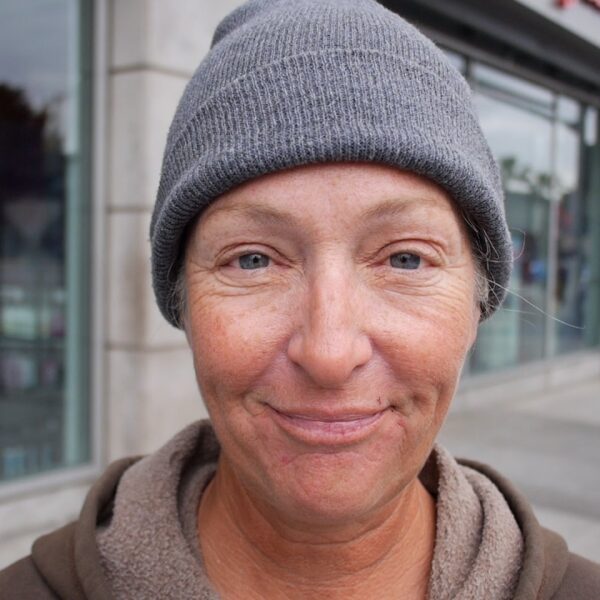CARES Act Has Potential to Leave the Most Vulnerable Americans Behind
The Coronavirus Aid, Relief, And Economic Security Act (CARES Act) comes as a relief to many. It will provide much-needed support and resources to millions of Americans who face unemployment, furlough and decreased income due to factors like loss of childcare.
It will also provide a considerable amount of funding to programs serving homeless people. Food banks, domestic violence shelters, community health centers, and others will all get some relief. Through Community Development Block Grants, $5 billion will be put toward shelter and emergency rental assistance.
Many more billions will be put toward homeless prevention. Through the Emergency Solutions Grant, $4 billion is set aside for eviction prevention. This includes services like rapid rehousing and rental deposit assistance. SAMHSA and the VA will get increased funding to help veterans and those addicted to substances. The Department of Labor will receive funds for job training for displaced workers.
This is wonderful news for the over half a million homeless people living in the US. It’s hard to deny the stimulus bill is generous, especially compared to past stimulus bills. This money will allow programs to continue to serve their clients, at least in some capacity.
However, the question is: Is it enough?
Excluded From Direct Payments
Despite these large figures, the most talked-about element of the bill is the direct payment to individuals. These checks represent a collective sigh of relief for Americans. It’s an urgent matter for those with numerous bills to keep up with after being laid off. And for homeless people, that check may be all they need to pay a rental deposit or buy a car.
Unfortunately, as has happened so many times in the past, homeless people can fall through the cracks.
To receive a direct payment through the stimulus bill, the government will look at individuals’ tax returns – from 2019, or 2018 if not filed yet. If someone has not filed taxes but receives money from Social Security, the government will pull information from Social Security (if you are disabled or retired) to calculate the payment. If an individual has neither filed taxes nor receives money from Social Security, they will have to file a simple tax return. The IRS plans to release information on how to do this soon.
Payments will be deposited into the bank account used for direct deposits of tax returns. If none is available, a check will be sent in the mail to an individual’s last-known address. A notice will be sent ahead of time to verify amount and method of payment.
Many things can go wrong for homeless people in this process.
For example, homeless people might:
- Lack an address
- Not have a bank account
- Not have had a job, so weren’t required to file taxes
- Be undocumented immigrants
- Not know how to file a simple tax return
- Not have access to a computer to file
- Be claimed as a dependent
It’s easy to see how easily homeless people can fall through the cracks. This stimulus bill, while a tremendous relief for the hurting middle class, has the potential to leave the most vulnerable and desperate among us with nothing. It would be easy to look at a relief bill as expansive as this and assume everyone is safely under its umbrella. However, as we can see above, that’s not the case.
What Does This Say About How Society Views Homelessness?
Some may say homeless people are no worse off than they were before the stimulus bill. But these are especially dangerous times to be vulnerable. A $1,200 check may mean the difference between getting into an apartment and being surrounded by others in a shelter. In a global pandemic, a private residence could be the difference between life and death. Due to common medical conditions among homeless people, they are at greater risk for dying from coronavirus.
For those who did not file tax returns, those who are undocumented, and those with no address, the message is clear. You are worthy of help if you are a productive, contributing member of society. You have to give in order to get. This mentality is reflective of the US’s warped perspective on productivity: your worth is measured by your material wealth.
It doesn’t have to be this way, though.
The stimulus bill is, of course, not all bad, either. It will do what it was intended to do, which is pump a large amount of money into the economy. It should have made sure more money went directly to all Americans, which is a flaw, but not an insurmountable one.
What’s needed now is wise decision making by people on the receiving end of agency funding. They need to funnel these massive amounts of money into programs that keep all homeless people safe – regardless of legal status, employment status, and ability. They will need to be informed about the ways homeless people can fall through the cracks and keep this from happening.
Agencies on the receiving end of funding can, for example:
- Hire street outreach workers to educate homeless people on the money they’re owed and how to get it
- Open computer labs and help people apply for their stimulus checks
- Share the money and resources with undocumented families
- Hire more case managers to help greater amounts of clients
- Market and promote themselves so the public knows what’s available
The stimulus bill is certainly far from perfect. It places a great amount of responsibility on programs and not enough on individuals. It will be up to the leaders of these programs to effectively get money to homeless people. If they can do this, the bill holds a tremendous amount of potential for good.













